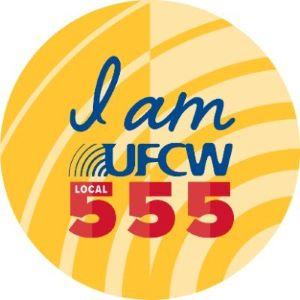A North Dakota marijuana legalization initiative campaign and an Oregon marijuana union initiative campaign both handed in signatures, and more.

House Appropriations Committee Approves Spending Bill That Blocks Justice Department from Rescheduling Marijuana. The GOP-led House Appropriations Committee voted Tuesday to approve a must-pass spending bill, but only after larding it with anti-marijuana provisions. The spending bill covers Commerce, Justice, Science, and Related Agencies.
As adopted by the committee, the spending bill would block the Justice Department from rescheduling marijuana and amend the longstanding rider protecting medical marijuana states from federal interference by authorizing enhanced penalties for sales near schools and parks, ,
The broadside against rescheduling comes as the Justice Department is considering moving marijuana from Schedule I to Schedule III of the Controlled Substances Act, a process initiated by the Biden administration two years ago. The Food & Drug Administration has already recommended rescheduling after reviewing the evidence.
Before adjourning, the committee burnished its anti-marijuana position by rejecting an amendment from Rep. Barbara Lee (D-CA) that would have blocked the Justice Department from interfering in any state or tribal marijuana programs. The committee killed that amendment on a voice vote.
North Dakota Marijuana Legalization Initiative Campaigns Hands in Signatures. New Economic Frontier, the group behind a proposed marijuana legalization initiative, handed in 22,000 raw signatures on Monday in a bid to qualify for the November ballot. The group needs 15,582 valid voter signatures to make the ballot, and with a cushion of roughly 50 percent, appears likely to qualify.
The initiative would legalize the possession of up to an ounce by people 21 and over and allow them to grow up to three plants at home. It contains no provisions for a taxed and regulated market in marijuana, which would leave the creation of a legal marijuana market up to the legislature in the future.
"A lot of what we don’t want to see is what’s going on in some of the other states, and we think that this is a measure that fits the conservative nature of North Dakota," said Burleigh County Commissioner Steve Bakken, who filed the initiative.
"We believe that legalizing adult-use cannabis is the key to transforming North Dakota. With this, we can unlock economic opportunities for our communities, create new jobs, ensure easier access to medical cannabis, and free up valuable law enforcement resources," the group said in a statement.
Voters in the state approved medical marijuana in 2016 but rejected earlier efforts to legalize it with 59 percent opposed in 2018 and 55 percent opposed in 2022. This stripped-down version of legalization is designed to appeal to voters nervous about allowing a legal marijuana marketplace.
Oregon Initiative to Require Pot Businesses to Allow Unionization without Interference Hands in Signatures. An initiative campaign led by the United Food & Commercial Workers (UFCW) Local 555 that would require marijuana businesses to allow union organizing efforts without interfering appears set to appear on the November ballot after handing in more than 163,000 raw signatures last Friday. The measure needs 117,173 valid voter signatures to qualify.
"We’re extraordinarily confident this will qualify," said Michael Selvaggio, UFCW Local 555′s political director. "We’re passing this measure."
The initiative campaign comes after the union tried and failed to get the legislature to enact a similar law last year. After that effort failed, the union attempted to recall Rep. Paul Holvey (D-Eugene), who, as chair of a key committee, the union accused of tanking the bill. That effort also failed, but Holvey announced he would resign when his current term expires.
The initiative would require marijuana businesses to sign a "labor peace" agreement with a union in order to obtain a business license. Management would agree to stay neutral if employees take steps to unionize.
"When Oregon first legalized cannabis, it did not build in worker protections that other states, such as California, New York, and New Jersey did," UFCW Local 555 spokesman Miles Eshaia said in a release. "Because of vague federal laws, some employers have refused to acknowledge workers’ rights. This measure makes such acknowledgment part of the licensure process."
International
Germany Approves First Marijuana Social Club. Miriam Staudte, the agriculture minister in the state of Lower Saxony, announced Monday that her office had approved a permit to the Social Club Ganderkesee to allow the cooperative to begin growing marijuana for members. It is the first marijuana social club to be approved since the country legalized marijuana earlier this year.
More are expected to follow shortly, although some states, such as Bavaria, have announced restrictive policies that could slow the issuance of permits until the fall at the earliest.
Issuing the social club permit represents a "historic step for consumer protection and controlled cannabis cultivation in Germany," Staudte said.
While the country legalized the possession and home cultivation of small amounts of marijuana, it did not create a legal marijuana marketplace. Instead, it allows for the social clubs (or co-ops) to produce marijuana for their members. Social clubs can have up to 500 members who can each purchase 50 grams per month. A legal marketplace could be coming down the road, though.
This work by StoptheDrugWar.org is licensed under Creative Commons Attribution-ShareAlike 4.0 International
Add new comment